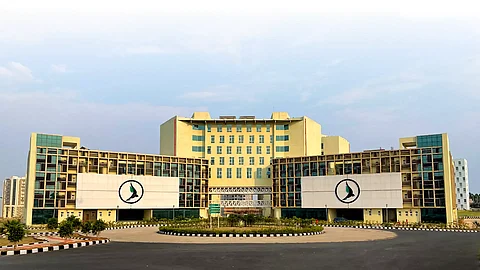

IIM Ranchi has decided to do away with traditional midterm exams across all its programmes. Instead, students will now work on Artificial Intelligence (AI)-led real-world business projects as part of their evaluation.
The new initiative, branded as “WAI” (Working with AI), is designed to bridge the gap between classroom theory and real-world business demands, particularly in human-AI collaboration.
Highlighting the rationale behind this shift, Dr Deepak Srivastava, Director of IIM Ranchi, explained, “We recognised that the traditional model of isolated theoretical learning was increasingly disconnected from the dynamic needs of modern business. Our students needed to develop competencies that transcend textbook knowledge – they need to work collaboratively with emerging technologies to solve complex business challenges.”
Why WAI?
According to an official statement, conventional tests often fall short in evaluating the critical skill of integrating technology into complex decision-making.
As part of the revamp, the institute has also modernised its classroom participation policy. The previous rule of compulsory attendance has been scrapped in favour of a flexibility-focused system, that encourages participation through positive reinforcement.
Students are incentivised to engage meaningfully, while also being given the freedom to pursue extracurricular learning paths.
Under the WAI framework, students will now be assessed through real-time collaboration with AI tools to solve business problems.
The goal is not just to understand the technology, but to develop practical abilities, such as selecting the right AI platforms, understanding their constraints, interpreting their outputs, and integrating those with human insights and judgement.
End-term assessments to continue
Despite this radical shift in mid-term evaluation, the institute isn’t entirely moving away from conventional exams.
Traditional hall-based end-term assessments will continue, ensuring that students also build strong analytical and theoretical foundations.
Prof Gaurav Manohar Marathe, Chairperson of the Student Engagement and Development Committee (SEDC), said, “We are not discarding the strengths of traditional evaluation methods. Rather, we are building a well-rounded assessment ecosystem that equally values foundational academic knowledge and the ability to apply that knowledge in real-world scenarios.”
